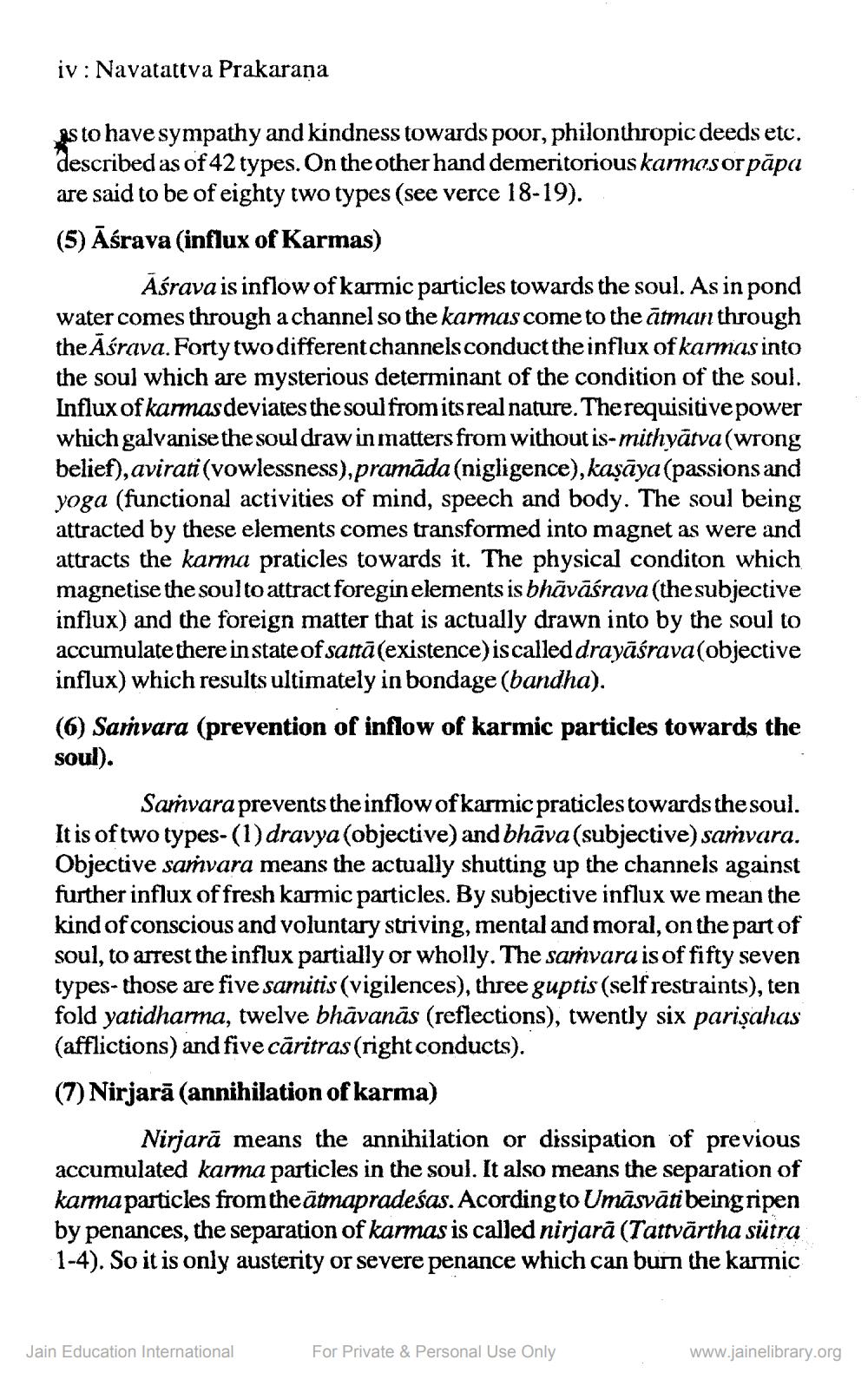________________
iv: Navatattva Prakarana
as to have sympathy and kindness towards poor, philonthropic deeds etc. 'described as of 42 types. On the other hand demeritorious karmas or pāpa are said to be of eighty two types (see verce 18-19).
(5) Aśrava (influx of Karmas)
Aśrava is inflow of karmic particles towards the soul. As in pond water comes through a channel so the karmas come to the atman through the Aśrava. Forty two different channels conduct the influx of karmas into the soul which are mysterious determinant of the condition of the soul. Influx of karmas deviates the soul from its real nature. The requisitive power which galvanise the soul draw in matters from without is-mithyātva (wrong belief), avirati (vowlessness), pramāda (nigligence), kaṣāya (passions and yoga (functional activities of mind, speech and body. The soul being attracted by these elements comes transformed into magnet as were and attracts the karma praticles towards it. The physical conditon which magnetise the soul to attract foregin elements is bhāvāśrava (the subjective influx) and the foreign matter that is actually drawn into by the soul to accumulate there in state of satta (existence) is called drayāśrava (objective influx) which results ultimately in bondage (bandha).
(6) Samvara (prevention of inflow of karmic particles towards the soul).
Samvara prevents the inflow of karmic praticles towards the soul. It is of two types- (1) dravya (objective) and bhāva (subjective) samvara. Objective samvara means the actually shutting up the channels against further influx of fresh karmic particles. By subjective influx we mean the kind of conscious and voluntary striving, mental and moral, on the part of soul, to arrest the influx partially or wholly. The samvara is of fifty seven types- those are five samitis (vigilences), three guptis (self restraints), ten fold yatidharma, twelve bhāvanās (reflections), twently six parișahas (afflictions) and five cãritras (right conducts).
(7) Nirjarā (annihilation of karma)
Nirjara means the annihilation or dissipation of previous accumulated karma particles in the soul. It also means the separation of karma particles from the atmapradesas. Acording to Umāsvāti being ripen by penances, the separation of karmas is called nirjarā (Tattvärtha sütra 1-4). So it is only austerity or severe penance which can burn the karmic
Jain Education International
For Private & Personal Use Only
www.jainelibrary.org




